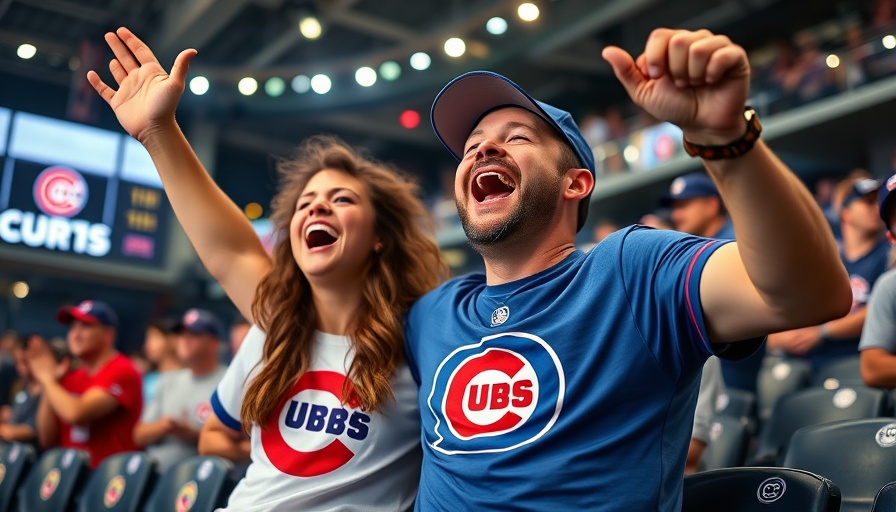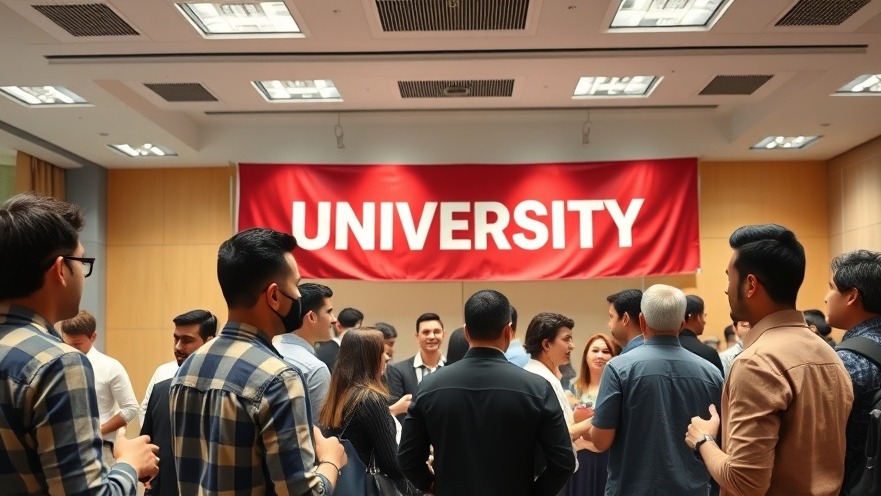
When Popularity Meets Indifference: Alex Cooper’s 7th Inning Stretch
On a sunny afternoon at Wrigley Field, the Chicago Cubs invited a notable guest to lead one of baseball's most beloved traditions—the singing of "Take Me Out to the Ball Game" during the 7th-inning stretch. This year, Alex Cooper, the host of the popular podcast "Call Her Daddy," graced the microphone with high hopes of enchanting fans. But instead of cheers, she was met with a wave of boos, leaving many to ponder the complex relationship between celebrity and audience expectations.
The Reaction of Cubs Fans
Cubs fans, notorious for their passionate and vocal nature, made their opinions heard loud and clear. It appears that Cooper's presence, despite her fame, did not resonate with the audience as they outrightly booed her performance. Chicago's fervent baseball culture may play a role in their rejection; fans expect tradition and authenticity in their ballpark experiences. This specific instance ignited conversations on social media platforms, where many expressed disbelief and criticism towards the star, drawing lines between fame and acceptance.
Understanding the Fan Culture in Chicago
Chicago is home to some of the most devoted sports fans in the nation. A city that lives and breathes baseball, the Cubs' supporters have witnessed a rollercoaster of seasons and struggles. This cultural backdrop sets unrealistically high standards for anyone stepping onto that stage during a game. Cooper's prior history as a podcasting celebrity may not translate to acceptance among fans who might prefer local personalities or traditionalists bringing their own flair to the segment.
Social Media's Role in Influencing Perceptions
The event has sparked a lively discussion online, reflecting the modern phenomenon where celebrities are both revered and critiqued instantaneously. Platforms like Twitter have become battlegrounds for opinions, where users share snippets of the experience and their reactions in real time. The backlash faced by Cooper highlights how social media can shape public perception quickly, often dictating who emerges as a community favorite versus who gets sidelined.
Enter the Celebrity: The Fine Line of Fan Engagement
In the world of celebrity, it's a tricky landscape to navigate. While many fans cheer for their favorites, not everyone can please the masses. Cooper's experience showcases this reality vividly. Fans have exacting standards, and they may prefer athletes, local heroes, or even sports commentators over outside celebrities. However, this scrutiny can be a double-edged sword, as it emphasizes how fleeting celebrity status can be. Being popular in one realm doesn’t guarantee acceptance in another.
What Does This Mean for Future Celebrity Appearances?
Looking ahead, this incident may set a precedent for how celebrity guest appearances are perceived at sporting events. Will teams rethink their choice of guest talent? The fallout from Cooper's appearance raises questions about the relationship between sports franchises and the influencers they associate with. Future partnerships might favor those who have demonstrated genuine connections with the audience, whether through local ties, history with the team, or contributions to the community.
Taking a Leaf from Sports History
This isn't the first time a celebrity has experienced pushback from sports fans. Historical instances—like pop star Justin Bieber's infamous moment at a Chicago Bulls game—remind us that celebrity interactions are often unpredictable. Sports and entertainment intersect often, but they do so at the risk of losing touch with the audience's sentiments, values, and expectations. In many respects, Cooper's experience serves as a lesson for future celebrities about the powerful nuances of local pride and identity.
Conclusion: Navigating the Unpredictable Landscape of Fame
The booing of Alex Cooper is not just a singular incident in sports entertainment—it’s a reflection of a larger societal dynamic that melds celebrity culture with sports fandom. As the nation follows the unfolding narratives of both industries entwined together, it becomes imperative for celebrities to engage with their audiences authentically. Whether it's through a shared passion, interests, or community involvement, building a rapport is essential for approval and acceptance.
If you find yourself intrigued by the intersection of sports and celebrity, take time to reflect on how fan reactions shape those narratives. The way forward lies in understanding these dynamics, making every performance—be it by a sports legend or a podcast host—truly memorable for all the right reasons.
 Add Element
Add Element  Add Row
Add Row 



 Add Row
Add Row  Add
Add 


Write A Comment